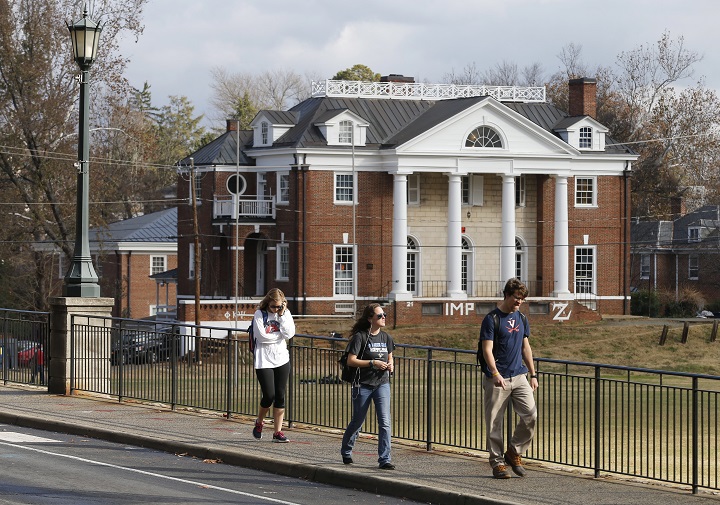CHARLOTTESVILLE, Va. – The University of Virginia should lift its suspension of fraternity and sorority activities now that Rolling Stone has acknowledged mistakes in its reporting of an alleged gang rape on campus, three organizations said in a statement.

The Fraternity and Sorority Political Action Committee, the National Panhellenic Conference and the North-American Interfraternity Conference also said the university should apologize for a “rush to judgment” that damaged the reputation of Greek organizations and students.
University President Teresa A. Sullivan suspended Greek activities until Jan. 9 after Rolling Stone published an article last month describing an alleged gang rape at the Phi Kappa Psi fraternity house. In their statement Sunday, the three national Greek organizations said the decision was made before an investigation into the story’s allegations was completed.
“We believe universities must demonstrate more respect for the fundamental rights to due process and freedom of association for students and student organizations when allegations of misconduct are lodged,” they said. “A rush to judgment on campus all too often turns out to be wrong, especially when applied at the organizational level.”
READ MORE: Rolling Stone casts doubt on student’s account of being gang-raped at frat party
University spokesmen did not immediately return telephone and email messages to The Associated Press on Monday.
The statement came the same day that Rolling Stone modified its earlier apology to emphasize that the mistakes were the magazine’s fault, not the alleged victim’s. Friday’s original note to readers said of Jackie, the alleged victim who was the main source for the story: “Our trust in her was misplaced.” The updated note removes that line, which struck some critics as blaming the victim.
The magazine said it shouldn’t have agreed to Jackie’s request not to contact the alleged assailants to get their side of the story, out of sensitivity to her. “These mistakes are on Rolling Stone, not on Jackie,” wrote the magazine’s managing editor, Will Dana. “We apologize to anyone who was affected by the story and we will continue to investigate the events of that evening.”
The Rolling Stone article rocked a campus still reeling from the disappearance and death of 18-year-old sophomore Hannah Graham. It portrayed a culture of sexual violence at U.Va., one of the nation’s leading public universities, and an administration response that put protecting the school’s image ahead of seeking justice for sex crimes.
READ MORE: University of Virginia suspends activities at fraternities amid probe
Phi Kappa Psi has denied the assault and said it didn’t host an event on the night Jackie alleged she was raped. Dana said in his updated note that Jackie is now unsure that the man who allegedly lured her into a room to be raped by seven men was a member of Phi Kappa Psi, and that other discrepancies in her account have emerged. Jackie told the Washington Post she stood by her story.
Some advocates for rape victims have expressed concern that the magazine’s backpedaling could undermine efforts to combat campus sexual assaults. The U.Va. Inter-Fraternity Council said that should not be allowed to happen.
“Sexual assault is a problem across college campuses, and we remain committed to being leaders in the campaign for long-term change,” the council, which represents U.Va.’s 31 fraternities, said in a statement.



Comments